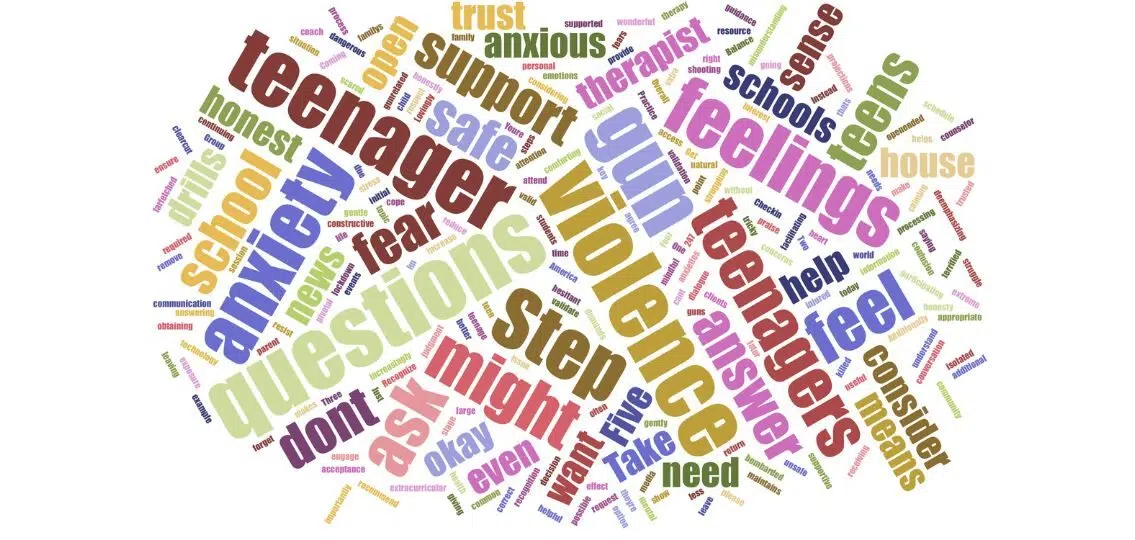For the first time in my career as a therapist, teenage clients are coming to me to help them reduce their anxiety, stress, and fear surrounding the rise in gun violence across America, particularly in schools. The fear of guns is a tricky topic that increasingly demands attention. Perhaps your teen is struggling with this same issue, too.
Here are five steps you can take to have a constructive dialogue with your teenager about their anxieties surrounding gun violence.
Teens and Gun Violence Anxiety
Step One: Recognize your teen’s anxiety without judgment.
Teenagers are hesitant to attend school, as well as large extracurricular events due to their fear of being killed or injured. I encourage you to validate this anxiety by gently comforting and acknowledging your teenager’s concerns. Their feelings are valid and it’s okay and natural for them to be anxious, considering the increase in gun-related violence. Lovingly praise them for being open and honest about their feelings. This initial stage of validation, recognition, and acceptance is pivotal in facilitating open communication.
Step Two: Practice compassion through mindful questions.
Compassion is key. Teenagers today are bombarded with news and information about gun violence through social media, the news, and 24/7 access to technology. Additionally, students are often required to engage in lockdown or shooting drills in their schools. Consider the effect all this exposure might have on your teenager’s anxiety. Check-in with your teenager to better understand how they’re processing their emotions. Ask gentle questions such as; “How did you feel participating in those drills? What was that like for you?” If they resist answering your questions, I encourage you to respect their decision and return to this conversation at a later point in time.
Step Three: Answer their questions honestly.
Your teenager might ask you questions about gun violence and how to cope. Take heart. Coming to you with their questions means they trust you. Even if you can’t provide a clear-cut or “correct” answer, that’s okay. Just be as honest as possible, even if it means acknowledging your own confusion, misunderstanding, and concern. Your honesty maintains their trust.
Overall, I recommend calming fears by deemphasizing your personal feelings and projections. Instead of saying, “You’re right, going to school is dangerous. The world is unsafe and I’m terrified of you leaving the house,” it’s appropriate to say, “I don’t have the answer to your question, and it makes sense that you are scared.”
Step Four: Ask how you can help your child feel safe.
When you ask open-ended questions, you show interest in your teenager. Your concern helps them feel safe and less isolated with their anxious feelings. A useful question might be; “What can I do to make you feel more safe and supported?”
If their request is too far-fetched or extreme — for example, they don’t want to leave the house, or they want you to remove them from school — you don’t have to agree to it. Balance common sense with your teen’s mental health and your family’s situation.
Step Five: Get extra support when you need it.
- If your teenager is continuing to struggle, consider obtaining additional support. A trusted therapist, counselor, or life coach can be a wonderful resource.
- Group therapy might also be a helpful option for your teenager, giving them a supportive community.
- You can also schedule a family session.
- Most importantly, please do not forget your own needs as a parent, and ensure that you are also receiving the support and guidance you need to process your feelings about all this gun violence, too.
